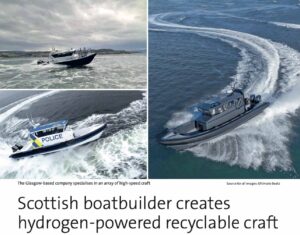The global carbon fibre composites market, valued at $24.6 billion in 2021, is projected to reach over $40 billion by 2027. This surge is primarily fueled by demand for lightweight and durable materials in sectors like aerospace, automotive, wind energy, and sporting goods. Despite its popularity, the production of carbon fibre composites poses substantial environmental challenges.
The production process is energy-intensive, consuming up to 1,000 megawatt-hours per metric tonne of carbon fibre, resulting in about 1,500 metric tonnes of CO2 equivalents. This significant carbon footprint highlights the urgent need for sustainable manufacturing practices. Additionally, carbon fibre production is water-intensive, requiring up to 250,000 litres per metric tonne, stressing local water resources.
Air pollution is another serious concern, with emissions including volatile organic compounds (VOCs), carbon monoxide, and nitrogen oxides, which can adversely affect human health and environmental quality. The process also generates considerable waste, such as offcuts and scraps, which are challenging to recycle and manage sustainably.
In response, the industry is exploring sustainable practices, including the use of renewable energy and the development of recycling programs. Efforts are also underway to produce carbon fibre composites that have a lower environmental impact. To sustain growth and remain competitive, companies are increasingly prioritizing sustainability in their operations, aiming to reduce their ecological footprint while continuing to innovate in the market.
Adopting greener practices not only helps companies stand out in the market but also plays a crucial role in protecting the environment, ensuring that the growth of the carbon fibre composites industry is both sustainable and responsible.






